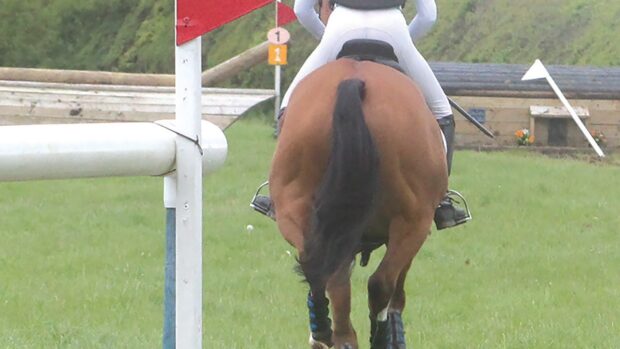Horses and riders who repeatedly run into cross-country difficulties will be forced to drop down a level before they compete again.
The new rule is part of British Eventing’s (BE) 2019 regulations, in which safety and welfare are brought to the fore.
This rule was first raised publicly at BE’s AGM in November (news, 8 November) and the organisation has now shared details of how exactly it will work.
At affiliated events this year, horses who have two consecutive cross-country eliminations — as a result of refusals, run-outs, or horse or rider falls — or who have three eliminations within a rolling 12-month period must drop down a level at their next event under the continuing performance requirement rule.
Once they have completed a run that fulfills the minimum eligibility requirements (MER) at that lower level, they can move up again.
If eliminations happened at different levels, the MER must be achieved at the level below the highest level they were eliminated at — for example, if the eliminations happened at BE90 and BE100, the MER would need to be achieved at BE90 before entering another BE100.
A rider of a horse, or horses, who incur two continuing performance requirement within 12 months will be referred to BE under the “rider referrals” rule (3.8.4). This involves BE speaking to the rider and discussing whether coaching or assessments with an accredited coach might help them.

The organisation is also tightening up on sanctions for fallers who go home without first visiting the medical officer — this will now be punishable by a medical suspension. The rules also now state that the horse ambulance must remain on site until at least 30 minutes after the last horse has completed.
Article continues below…
You might also be interested in:

Ground-breaking eventing safety system to be trialled in Britain
British Eventing's Chris Farr described the system as “one of the most important developments in risk management in the sport,

New grassroots team eventing competition for adults
Adults will have the chance to compete as part of a team in British Eventing’s new competition, which will be

New FEI 2019 eventing rules: five-stars, no collectives and new rules for flags and whips
Find out what changes are in store for the 2019 eventing season
In cases of blood or lameness during the dressage phase, the judge will stop the test and consult with the BE steward and vet before deciding whether a combination should be eliminated or allowed to continue.
BE has moved away from its position of following FEI rules in the case of unattached neckstraps and hackamores. These have been banned for cross-country by the FEI for this year, but will be allowed under BE rules.
Click here to see the 2019 rule book
For more on the rule changes, don’t miss next week’s issue of Horse & Hound — out Thursday, 10 January)




